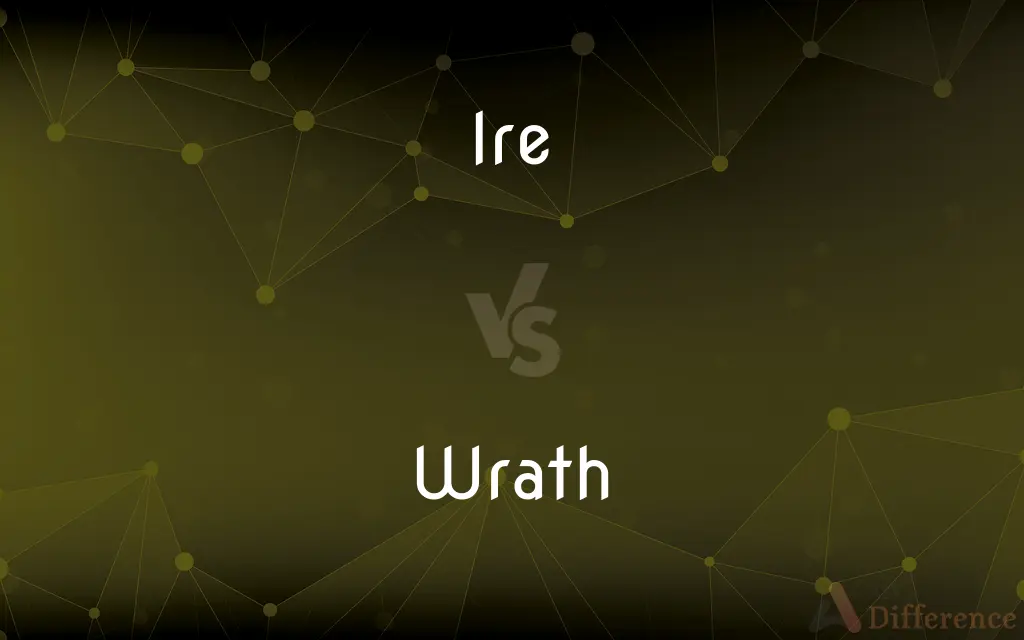Ire vs. Wrath — What's the Difference?

Difference Between Ire and Wrath
ADVERTISEMENT
Compare with Definitions
Ire
Anger; wrath.
Wrath
Extreme anger
He hid his pipe for fear of incurring his father's wrath
Ire
(obsolete) Iron.
Wrath
Forceful, often vindictive anger.
Ire
Great anger; wrath; keen resentment.
To raise the ire of someone
ADVERTISEMENT
Wrath
Punishment or vengeance as a manifestation of anger.
Ire
To anger, to irritate.
Wrath
Wrathful.
Ire
Anger; wrath.
Wrath
Great anger.
Homer relates an episode in the Trojan War that reveals the tragic consequences of the wrath of Achilles.
Ire
A strong emotion; a feeling that is oriented toward some real or supposed grievance
Wrath
(rare) Punishment.
Ire
Belligerence aroused by a real or supposed wrong (personified as one of the deadly sins)
Wrath
Wrathful; wroth; very angry.
Wrath
(obsolete) To anger; to enrage.
Wrath
Violent anger; vehement exasperation; indignation; rage; fury; ire.
Wrath is a fire, and jealousy a weed.
When the wrath of king Ahasuerus was appeased.
Now smoking and frothingIts tumult and wrath in.
Wrath
The effects of anger or indignation; the just punishment of an offense or a crime.
Wrath
See Wroth.
Wrath
To anger; to enrage; - also used impersonally.
If him wratheth, be ywar and his way shun.
Wrath
Intense anger (usually on an epic scale)
Wrath
Belligerence aroused by a real or supposed wrong (personified as one of the deadly sins)
Share Your Discovery

Previous Comparison
Unusable vs. Useless
Next Comparison
Kidnapping vs. Snatch














































